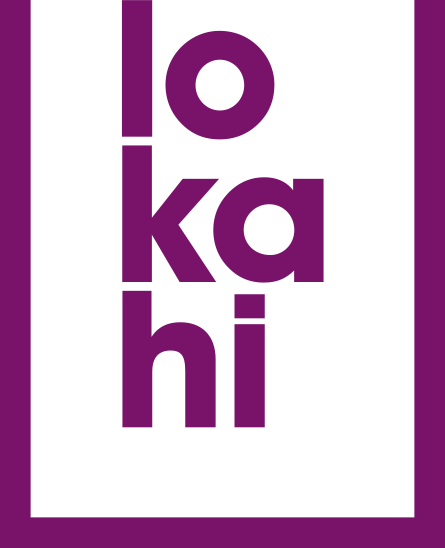about lokahi foundation
Research and Impact in Religion and Society.
Our Mission
We envisage a dynamic, resilient society that embraces religious and cultural difference as a source of strength and creativity.
Our mission is to cultivate harmonious, diverse communities by transforming the relationships within them. We pioneer projects that address the practical needs of these communities, and the impact is lasting social change. Our rigorous research probes the foundations of faiths, beliefs and values, and the result is an informed and insightful public.
Lokahi strives to achieve creative harmony from diversity
As an impartial, independent charity that holds no religious or political affiliation, Lokahi provides creative theological thinking of the different faiths not merely alongside one another, but thinking together about problems and issues to forge a genuinely interfaith perspective.
Through our specialist knowledge and community projects, Lokahi fashions creative and fruitful harmony from diversity – which is what the Hawaiian word ‘lokahi’ means.
The Meaning
What does ‘lokahi’ mean?
Lokahi is a Hawaiian word. It means harmony and balance.
There might be many people or things that come together in a lokahi. Some might actually conflict.
But one might not defeat the other. Each thing can remain itself. They don’t need to become or think the same, or even find a consensus.
Creating something new
Some larger context – some urgent need – some natural system – or some greater, unifying love draws them into convergence. Pulled through opposition, even hostility, each one plays its part in creating something new.
Hawaiian chants speak of the volcanoes and their landscape in this way. The lava gnaws along the land, making it new and ‘beautiful’ in its own way.
Lava cools. The flames fade. Wind and water break down the lava rock. The cinders become grains; the grains soil. Birds overfly, hover, and stay. Seeds drop. Ferns cautiously stretch forth their fronds in a new landscape. New ground has been created; pushing the earth further into the sea.
Kaleidoscope of differences
No one plan – plenty of conflict – and yet it is a dynamic, creative process.
Hawaiians ancient and modern call for ‘lokahi’ amongst themselves too. ‘Everyone comes together – that’s lokahi,’ says an old-timer. For a harvest, a fishing expedition, to solve a family problem. We humans too work best, most creatively, when harmony is sought, through a kaleidoscope of differences.
The unity or harmony in ‘lokahi’ does not mean sameness. It recognises that we will always walk different paths, desire different ends, and contend for them. More courageously, it says we can come together nevertheless, to work for the good, the beautiful, the needful.
Creative convergence
As humans of culture, religion, desire – there is no one thing that unites us. For we are not any one thing. Neither are our religions or cultures. We are emotions, ideas, beliefs, things we eat or cannot eat, needs, ways we dress or cannot, holidays and festivals, systems of thought, practices of prayer, ways of loving.
A true understanding of lokahi sees the variety of what each of us is, the spectrum of what we all are. Then it calls forth the responses we can make, the notes we can resonate on all these registers. To converge for creativity, joy, even survival – and leave us free to diverge on our own paths when love of freedom or truth call us apart.
Everyone comes together – that’s lokahi - says a Hawaiian old-timer
Our Origins
Professor Griffith-Dickson was born and raised in Hawaii and came to live in Britain in the early 1980s. She brought her extensive knowledge of Hawaiian cultural traditions and combined it with her academic background in theology and philosophy, forming the Lokahi Foundation.
In 2005 a group of seven individuals linked around a table in an office building in the City of London. Some were strangers to one another; others longstanding friends. They came from different religious and ethnic backgrounds, no two the same.
What united them was a sense of an urgent need in Britain: to understand religious issues a lot better.
Things could be better
They knew the conflicts that we were seeing in the UK and internationally had a religious dimension. But this aspect seems to be so mishandled in the media and in public discourse.
Religious issues – our sense of identity, what we believe, these bizarre movements that are springing up – these all have geopolitical impact. What is religious and what is political?
The group wanted to raise the standard of the public understanding of religion. Whether for or against religion, we believed that without an adequate understanding of religion it was difficult for people to cope with toxic ideas. No matter how intelligent and educated some were, being ‘religiously illiterate’ prevented intelligent debate.
Impact on the real world
Religion is hard to research. But they knew that what was needed was first-rate academic work that addressed what society needed most: interface of different faiths, cultures, and academic disciplines.
In order to increase public understanding of religion they knew that Lokahi’s work could not be trapped within an ivory tower. What was needed was real-world impact, which meant Lokahi’s research had to be coupled with projects and outreach to communities and constituencies that needed our resources most.
Real impact needed real-time research that did not stick to rigid timescales of an academic year. In order for religious communities, academia, the government and public servants, public and private sectors to benefit from Lokahi’s work it was imperative for high quality research to be ready when it was most needed.
We can work with a variety of organisations to achieve missions that align or complement with our vision of cultivating sustainable diverse communities. We offer workshops, training, unique events that transform tensions and conflicts between communities - real-world projects and real-time research to meet community needs.
Prof. Gwen Griffith-Dickson
Director | The Lokahi Foundation
Lokahi strives to achieve creative harmony from diversity

